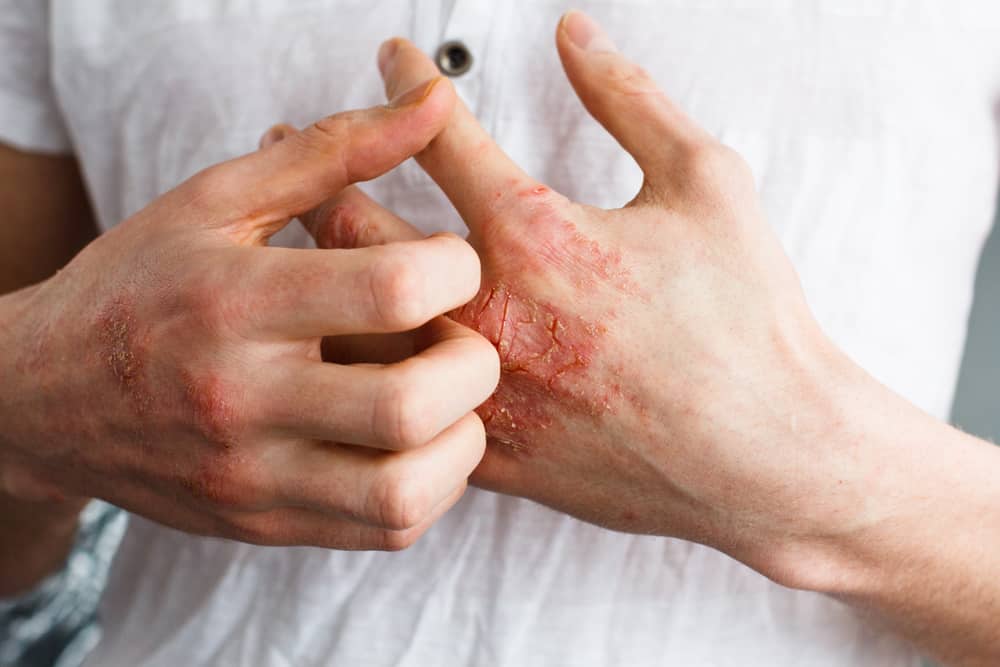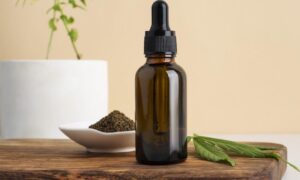
Psoriasis vs Eczema: What Sets Them Apart?
You may have Psoriasis or Eczema if you experience itching, redness, or scaling. Psoriasis, a chronic autoimmune skin condition, expedites the life cycle of skin cells and makes them grow very fast on the skin, leading to scales and patchy skin. Eczema, or Atopic Dermatitis, is generally caused by environmental factors and causes skin redness and inflammation.
Though their treatment can differ, skin creams like Flucort 0.025% (20 gm) can successfully combat skin inflammation and itching caused by both conditions. Keep reading this article on Psoriasis vs. Eczema to understand the symptoms, key characteristics, and causes that set them apart and how you can treat them.
Overview
Both Eczema and Psoriasis are both chronic skin conditions. Interestingly, they are often confused and one is mistaken to be the other due to the similarity in their symptoms. However, there are remarkable differences between causes, appearance, and treatment approaches. The table below gives a quick summary of the Psoriasis vs Eczema differences.
| Aspects | Psoriasis | Eczema |
| Definition | Autoimmune condition with thick, scaly plaques | Group of allergic or irritant conditions with itchy, inflamed skin |
| Appearance | Red plaques with silvery scales | Red or brown patches, often with oozing |
| Locations | Elbows, knees, scalp, palms, soles | Elbows, knees, neck, trunk(Anywhere on the body) |
| Symptoms | Itching is less intense, more painful; burning, joint pain | Intense itching, scratching, bleeding |
| Causes | Autoimmune, genetic, stress | Genetic, irritants, allergens |
| Diagnosis | Plaques and biopsy | Appearance and history |
| Treatment options | Topical steroids, systemic meds | Moisturizers, topical steroids |
Key differences between Psoriasis and Eczema
Eczema and Psoriasis are chronic skin conditions often confused due to similar symptoms and triggers, such as stress, skin injury, certain medications, and infections. However, they differ in causes, appearance, and treatment approaches.
Symptoms
Psoriasis often manifests as silvery scales covering well-defined, thick, red plaques. Psoriasis symptoms include itching, burning, and sometimes joint pain (Psoriatic Arthritis). The area which it affects may turn cracked or sore, too, adding to the discomfort. In contrast, dry, red, and bumpy patches of skin are signs of Eczema. Eczema symptoms include intense itching, sometimes causing scratching and bleeding. The skin may also swell up, and fluid-filled sacs might ooze or crust over.
Location
Psoriasis usually affects the scalp (and causes Psoriasis hair loss), elbows, knees, lower back, and buttocks. In some cases, it may also affect the soles of the feet and palms of the hands. Eczema commonly affects skin folds such as the back of the knees or the insides of elbows. It also affects the trunk and the neck. Eczema in infants may appear as minuscule bumps on the cheeks. Whereas in older children and adults, in most cases, it would make an apperance in the skin folds as rashes.
Appearance
Psoriasis characteristics often include thick, red, silvery-white scaly patches. The plaques have a clear definition and may have a slightly different tinge of color based on the affected individual’s skin tone. These plaques have a red with a silver sheen look on lighter or fairer complexions. For darker skin tones, they may appear dark brown or purple.
On the other hand, Eczema usually appears as lesser-defined and thinner patches of dry, red, or brown skin. Red, dry, itchy patches that may be cracked or oozing typically appear in Eczema. There are less clearly defined boundaries between the unaffected and Eczema-affected areas.
Causes
Psoriasis is caused when the immune system overreacts, mistakenly attacking healthy skin cells. The hastily produced skin cells cause thick, scaly plaques. Genes are also a reason behind this skin condition, as it has been shown to run generationally in families. Whereas allergens or irritants trigger Eczema. However, genetics may be a factor behind it too, having a hereditary component, such as individuals with a family history of allergies.
Age of onset
Psoriasis generally manifests later in life, often between the ages of 15 and 35, while Eczema is much more common in children between 2 months and five years of age.
Diagnosis
To diagnose Psoriasis, a dermatologist must conduct a thorough physical examination, ask about medical history, and, in some cases, suggest a skin biopsy. For Eczema diagnosis, skin and medical history are checked, and allergy tests may be required, too.
Treatment
Psoriasis is a lifelong condition, and while there is no cure, topical therapies, phototherapy, and systemic medications that target the immune system are employed in the treatment. There can be improvement or complete resolution of Eczema symptoms with treatment, including topical corticosteroids, moisturizers, and avoiding known triggers.
Conclusion
While attempting to understand Psoriasis vs Eczema, you should know their distinct causes, symptoms, and treatments. Psoriasis is an autoimmune condition causing rapid skin cell growth, while environmental factors often trigger Eczema, causing inflammation and itching. Though there are different treatment approaches for Psoriasis and Eczema, you can use Flucort 0.025% (20 gm) to manage their symptoms. Each condition requires a tailored approach, so to ensure improvement, you must consult a doctor for a proper diagnosis and treatment.



